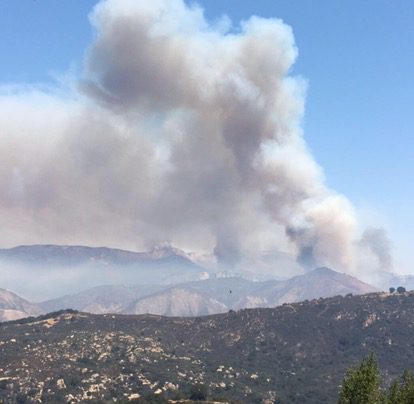By Raiza Giorgi
publisher@santaynezvalleystar.com
In future elections, candidates for the board of the ID1 water district will need to file an additional statement confirming that they own property within the Santa Ynez River Water Conservation District, Improvement District No. 1.
After a decision by Santa Barbara County Superior Court Judge Timothy J. Staffel, County Clerk-Recorder Joseph Holland said that this step will be added in future elections.
His office was sued by ID1 after he allowed two candidates who were residents but not land owners to remain on the November 2018 ballot, over ID1’s protests.
“My office is not an investigative (agency) to the degree we can verify those facts, but if candidates are willing to sign a document under penalty of perjury, then I will accept that,” Holland said.
This issue started when two candidates, Brian Schultz and Anita Finifrock, were removed from the ballot last August when attorneys for ID1 said that a section of state Water Code requires candidates to own property in the district.
Philip Seymour, an attorney for the two candidates, challenged that decision, and Holland informed all parties that he would restore Finifrock’s and Schultz’s names to the ballot. He cited a California Attorney General’s opinion that “concluded that the application of a property owner requirement to a particular district involved substantial questions of fact and law and was subject to judicial resolution after the election.”
“What concerns me is that ID1 is using rate-payer money to have lawyers challenge whether other rate payers (that pay their salary) are not allowed to run for trustee. If ID1 were private this might work, but this is a public entity and everyone who is in the district and registered to vote should be allowed to run,” Schultz said before the election.
Both Schultz and Finifrock lost to the incumbents.
Seymour said after the election he expected ID1 to challenge the decision but didn’t believe they would be successful.
“Those rules might apply for a private water district, but not a public entity like ID1. They aren’t a water district, they are an improvement district. It says so in their name,” he added.
After the case came before Staffel in July, he issued his statement in September that the Elections Office had, and continues to have, a ministerial duty to follow the Water Code and Elections Code, and does not have the discretion or authority to disregard the eligibility requirements established by the California Legislature.
The lawsuit didn’t challenge the results of the election, but focused on whether the Elections Office exceeded its authority by not following applicable code requirements in the district’s November 2018 election of trustees.
“ID1 chose to sue the county after the fact, which I thought was ridiculous. They should have waited until this issue came up again and take the candidates to court if they felt they were not qualified,” Holland said.
As the registrar of voters, he added, his office needed clarification as to whether a trustee really needed to be a property owner, and a process for handling that issue in the future.
“Judge Staffer ruled it was valid and we came up with the candidate statement for the future, which would be sufficient. There is no way for anyone to verify whether it’s true or not, because not all property documents are public. People can have agreements with family members, or part of a corporation, which we wouldn’t have access to,” Holland said.
Holland said his office will not be challenging the legality of the property ownership statute again, so any future challenge will be someone else’s fight.





